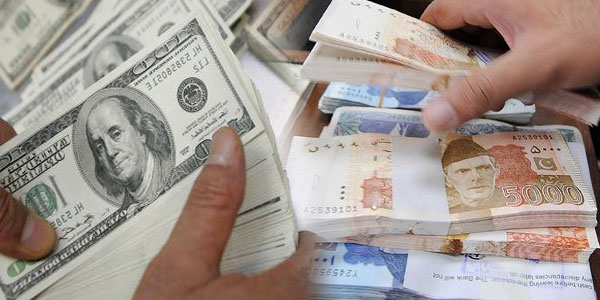KARACHI: Pakistan’s successful bond float of $2.5 billion from international debt markets has raised prospects of pressure easing on the rupee, which has been pummeled by rising political tensions in Pakistan.
The rupee depreciated this week due to violence and botched up operation in Faizabad last week which contributed to political tension and a standoff in major cities of Pakistan, reported Express Tribune.
Problems exacerbated on Wednesday when people were unable to buy dollars at a higher exchange rate of Rs109 or Rs110, said a currency dealer in Karachi. Currency dealers were only trading limited amounts of dollars and were banking on the greenback to further strengthen in coming few days.
Businesses and traders had been bracing for a major depreciation in rupee in coming weeks because of increasing trade deficit, but that seems to have eased due to successful raising of $2.5 billion from international debt markets earlier this week.
After this news broke, the US dollar was trading in range of Rs107.60-107.90 on Thursday and Exchange Companies Association of Pakistan General Secretary Zafar Paracha said things would greatly improve for the rupee in coming days.
Pakistan ratcheted up a current account deficit of $5 billion during July-October of financial year 2017-18, surging 122 per-cent year-on-year. Successful raising of $2.5 billion from international debt markets will boost foreign exchange reserves, which will now touch $22 billion.
This would also assist in import cover crossing the three-month level threshold, providing belief to investors and reining in fears of a major rupee depreciation, read an AHL Research report.




